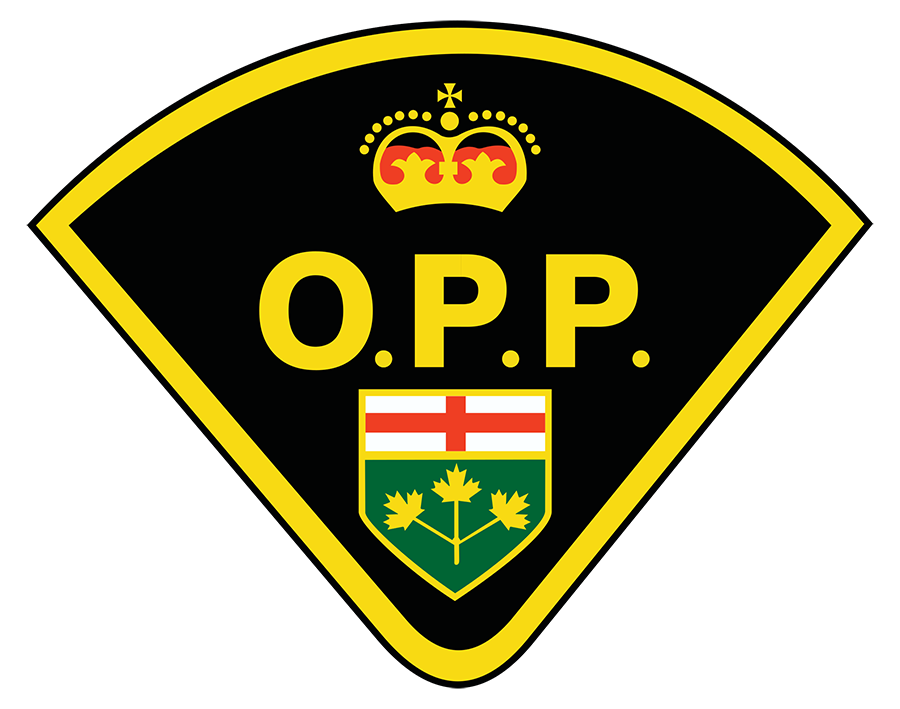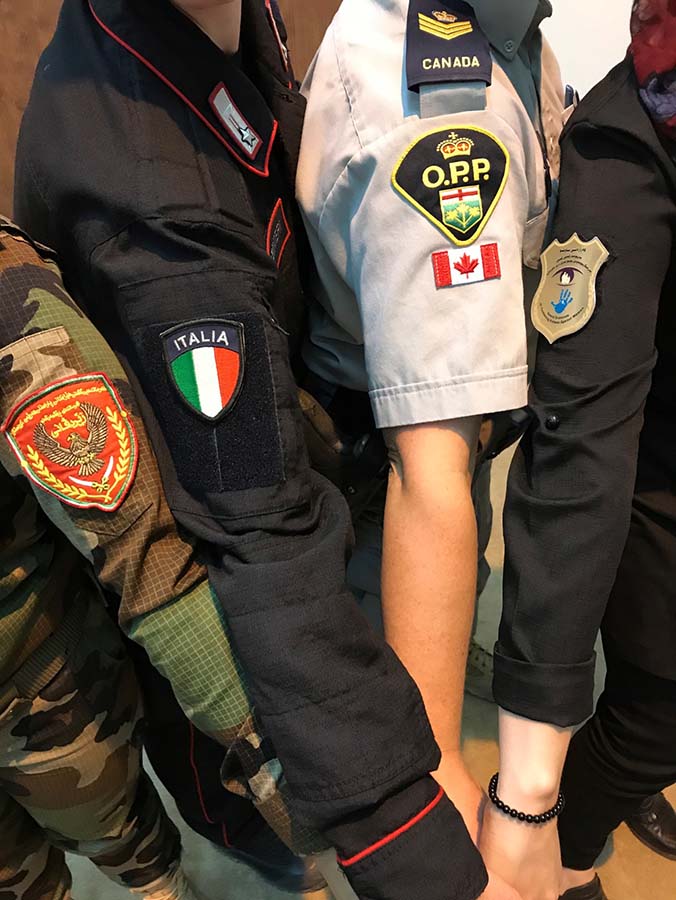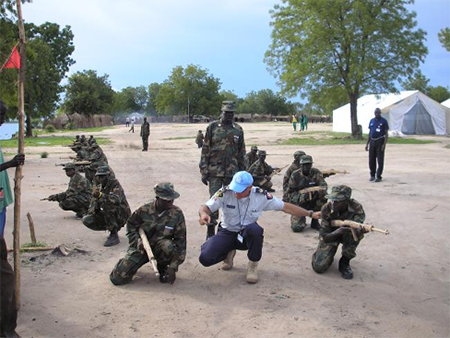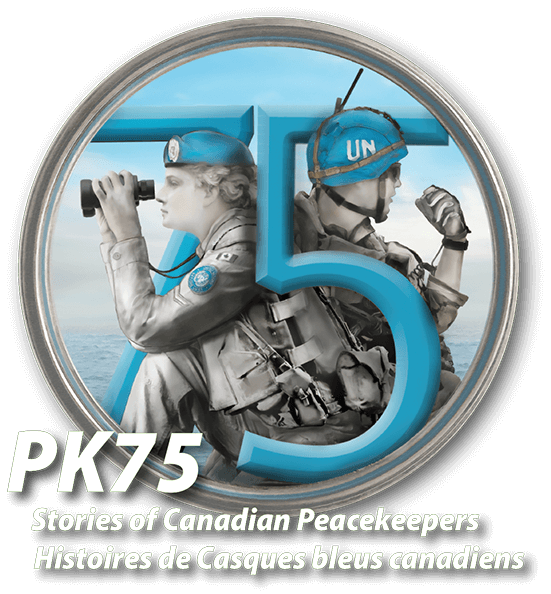
Ontario Provincial Police
The Ontario Provincial Police (OPP) has been responsible for policing in the Province of Ontario since 1909 and is the second largest police service in Canada. It currently has over 5,800 uniformed officers supported by 2,600 civilian employees and approximately 600 Auxiliary members. Together they provide policing in 329 municipalities, spanning more than 1 million square kilometres, including over 130,000 kilometres of roadways and 99,000 square kilometers of trails and waterways.
 The involvement of Canadian police officers in international missions goes back to 1989, starting with the RCMP. The current Canadian Policing Arrangement is a partnership between Global Affairs Canada (GAC), Public Safety Canada, and the RCMP. These partners manage the program that deploys its own members as well as various other police partners from across Canada. The OPP joined the program in 1995 and saw its first officers deployed on the ground in Haiti in 1996. Since that time, over 100 members of the OPP have deployed to 17 separate theatres of operation around the world including Bosnia, Palestine, Afghanistan, South Sudan, Cambodia, Ukraine and the criminal courts in the Hague. OPP officers have served in a variety of roles including investigations, community policing advisors, leadership mentoring and training. The international deployments include working with the United Nations, European Union and some direct bi-lateral arrangements between Canada and host nations. Some deployments are armed while others are not.
The involvement of Canadian police officers in international missions goes back to 1989, starting with the RCMP. The current Canadian Policing Arrangement is a partnership between Global Affairs Canada (GAC), Public Safety Canada, and the RCMP. These partners manage the program that deploys its own members as well as various other police partners from across Canada. The OPP joined the program in 1995 and saw its first officers deployed on the ground in Haiti in 1996. Since that time, over 100 members of the OPP have deployed to 17 separate theatres of operation around the world including Bosnia, Palestine, Afghanistan, South Sudan, Cambodia, Ukraine and the criminal courts in the Hague. OPP officers have served in a variety of roles including investigations, community policing advisors, leadership mentoring and training. The international deployments include working with the United Nations, European Union and some direct bi-lateral arrangements between Canada and host nations. Some deployments are armed while others are not.
When the OPP first began deployments, the duration was six months, which later turned into nine months. Since 2010, the typical deployment duration is one year plus pre-deployment training and post-deployment leave. The one-year term allows members to build the trust and relationships that are key to success. Typically, an OPP officer will have seven or more years of policing experience and participate in a selection process that could take months or years from application to deployment. The length of the process often depends upon demands and on matching the officer’s skill set with those desired for a particular mission. Factors taken into account could include rank, language(s) spoken, previous experience and specific skills such as criminal investigations, instructor qualifications or forensic identification. Once selected, the members go through physical fitness, psychological and medical evaluations accompanied by varying vaccinations before being cleared by the RCMP to attend pre-deployment training where they meet the other Canadian officers with whom they will deploy.
Similar to any job away from home, life goes on. Officers may have to make arrangements for everything from home maintenance to pet care. They put in place communication plans so they can stay in regular contact with family and friends, far easier in the days of cell phones and internet compared to the original deployments which relied on access to land line telephones. There are regular trips home or opportunities to meet with family in other locations.
 These officers return after a year having worked with police officers from other services in Canada and around the world while helping to bring a civilian policing perspective to rule of law in the host nation. They provide their policing expertise delivered with a Canadian smile often working in challenging environments that could include language barriers, literacy levels, ensuring that the basic necessities of food and water are available, health concerns such as malaria, lack of modern policing tools like radios or computers, working in politically sensitive post-conflict zones and dealing with divergent perspectives on human rights. Some days the training might be showing a group of police officers the proper deployment and use of a portable radio, or it could be teaching basic movements by drawing diagrams in the dirt and students using wooden sticks to simulate firearms. The day might even be spent ensuring there is enough food and water for students so they can concentrate on learning. Investigations take on a very different perspective depending upon actual laws that are in place and what are acceptable norms or practices in a particular community or culture; patience is key. Some of the most important pre-deployment training can be educating yourself on where you will be deployed and paying close attention to those briefings from GAC, all combined with what is offered in-country when you arrive.
These officers return after a year having worked with police officers from other services in Canada and around the world while helping to bring a civilian policing perspective to rule of law in the host nation. They provide their policing expertise delivered with a Canadian smile often working in challenging environments that could include language barriers, literacy levels, ensuring that the basic necessities of food and water are available, health concerns such as malaria, lack of modern policing tools like radios or computers, working in politically sensitive post-conflict zones and dealing with divergent perspectives on human rights. Some days the training might be showing a group of police officers the proper deployment and use of a portable radio, or it could be teaching basic movements by drawing diagrams in the dirt and students using wooden sticks to simulate firearms. The day might even be spent ensuring there is enough food and water for students so they can concentrate on learning. Investigations take on a very different perspective depending upon actual laws that are in place and what are acceptable norms or practices in a particular community or culture; patience is key. Some of the most important pre-deployment training can be educating yourself on where you will be deployed and paying close attention to those briefings from GAC, all combined with what is offered in-country when you arrive.
OPP members return having experienced personal and professional growth, although sometimes it can be difficult to make direct competency comparisons from some deployment environments to policing back in Ontario. It is often said that Canadian police officers demonstrate leadership well above their rank class from back home. One thing is for sure, everyone returns having experienced policing in a totally different context and with a much broader perspective of the world we live in.


